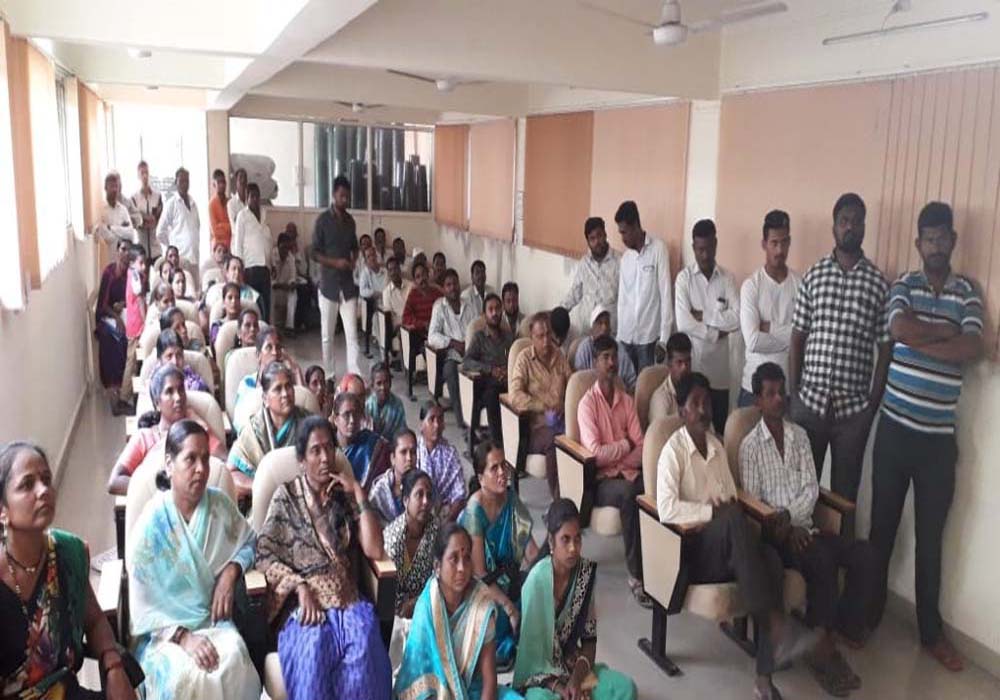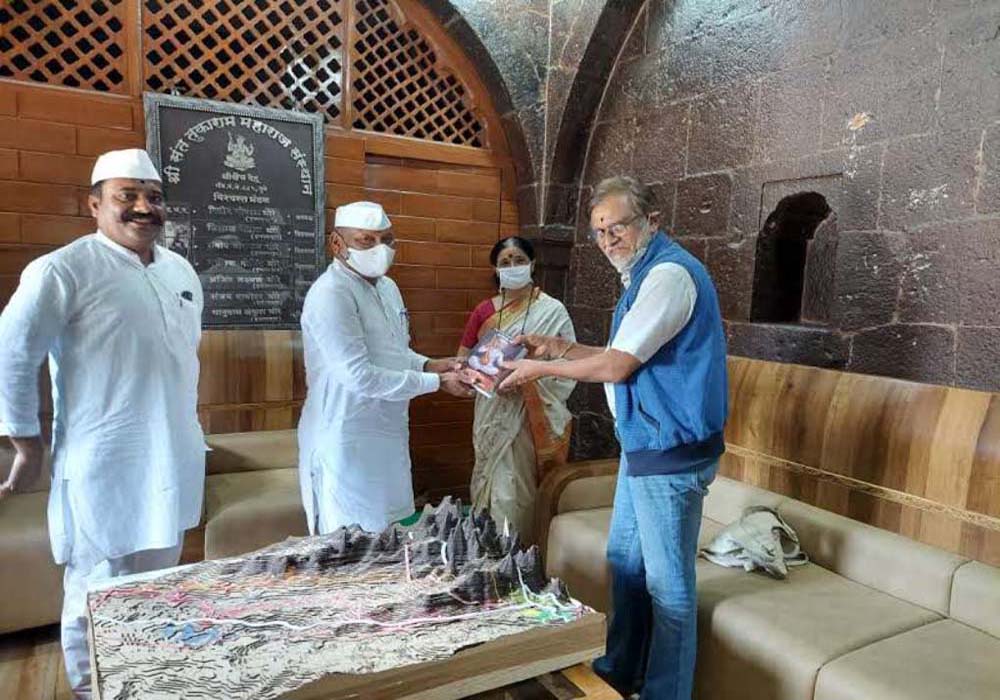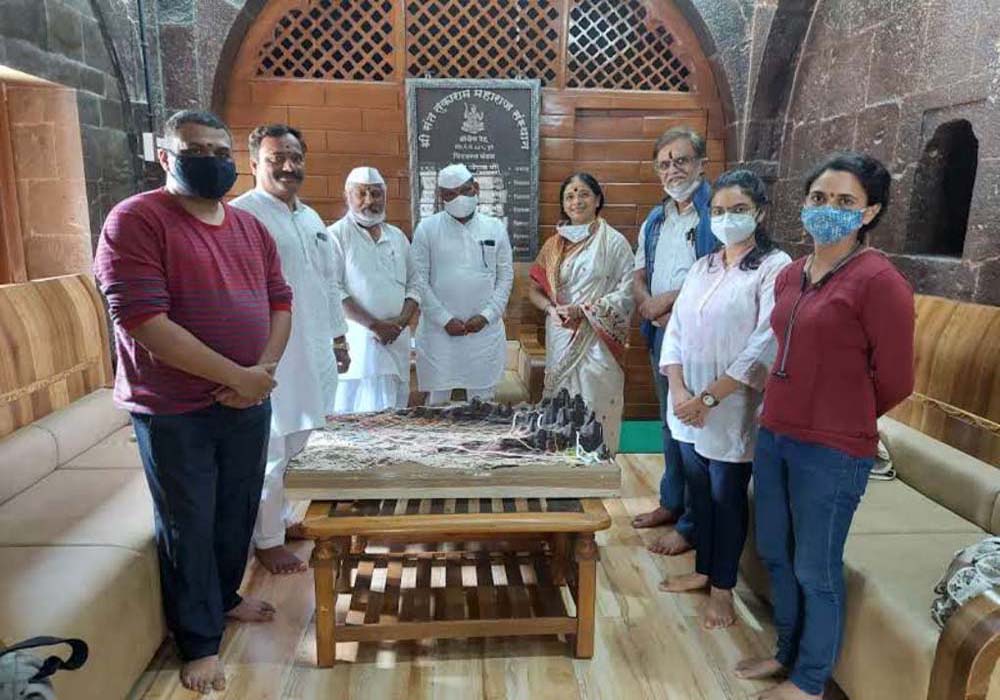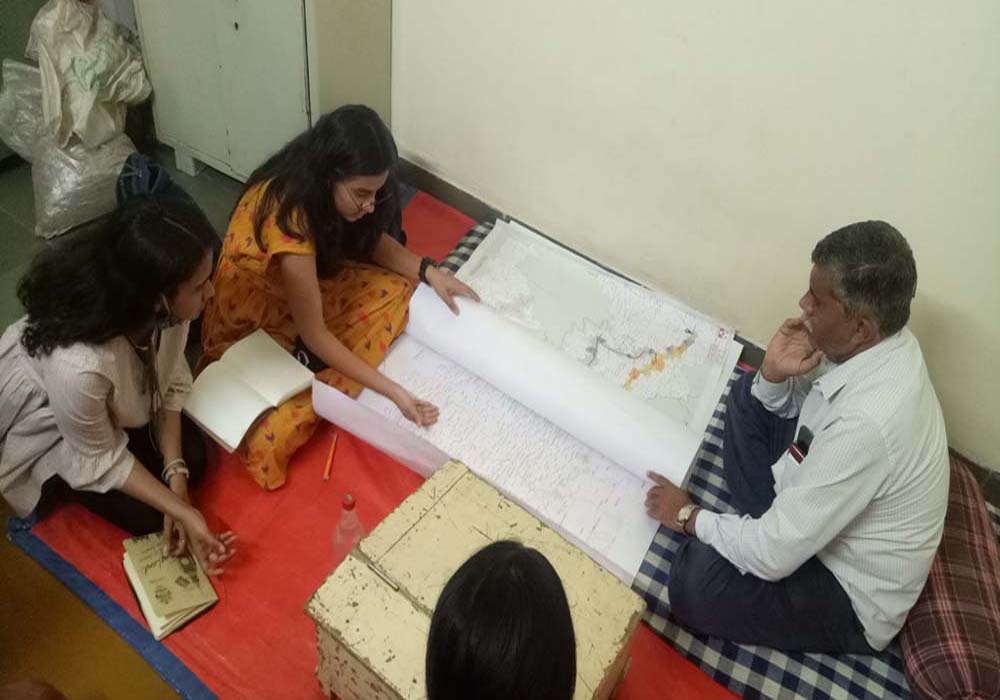RESEARCH AND ADVOCACY
Initiatives on the routes of Wari (Ongoing Project)
In the light of the same, MASHAL has been engaged in the study of practical issues along the Palkhi routes and addressing them through collective engagement of and partnerships with local communities, stake holders and government agencies. As a part of this research, MASHAL has prepared 3-D models of the Palkhi routes of Sant Tukaram Maharaj PalkhiSohala and Sant Dnyaneshwar Maharaj PalkhiSohala. A ceremony was arranged on 30th December 2021 to hand over these models at the hands of Mr. Rajesh Titar (Head of the Pilgrimage Dept. of Divisional Commissioner Office, Pune) to the temple trusts of Dehu and Alandi to display them in the respective temples. MASHAL also prepared few panels based on the same research which also were displayed in the exhibition.
Along with the research, a Rapid Assessment Survey has been undertaken in nine villages located on the routes of Wari. Villages on the route of Sant Dnyaneshwara Maharaj PalkahiSohala included Taradgaon, Barad, Malshiras and Velapur while those on the route of Sant Tukarama Maharaj PalkhiSohala included Baramati, Anthurne, Sarati and PirachiKuroli. Wakhari was the common village as all the Palkhis converge there before proceeding to Pandharpura. In the preliminary assessment it has been realized that the interventions are required to be planned from the perspectives of both, the Warakaris and the villages that host the Wari as people in these villages open their homes to pilgrims and voluntarily extend hospitality along with food and accommodation. Thus, MASHAL is planning a Waste Management Initiative on a pilot basis in two villages viz. Barad and PirachiKuroli. As a part of this, both the villages were visited for three days each i.e., day before the Palkhi arrival, day of Palkhi halt and the day of after the halt to collect data on waste generation and disposal.
Smart City Book- 2020
Aims of the Research Project:
1. Explore the levels of public awareness about the different projects happening under the SCM and raise awareness wherever possible.
2. Give voice to perspectives from diverse citizen groups, highlighting contesting and alternative narratives of the Smart City.
3. Feed into the on-going city-level implementation processes through offering citizen-led recommendations and suggestions for an inclusive, participatory development practice.
In accordance with these goals, MASHAL worked towards the following two objectives:
1. Analyse the themes and parameters of the smart city discourse, as well as the original Pune Smart City proposal, and bring them into conversation with citizens’ perspectives and implementation realities.
2. Assess the smart city project implementation so far through the citizens’ perspective and in relation to the mission’s parameters of sustainability, inclusivity and efficiency. The full Smart City Report was released on 30th December 2019.
HFAPoA (Housing for All Plan of Action) Jejuri: 2019
Water Diary Project- 2019
Water Diary Project was implemented in association of Helmholtz-ZentrumfürUmweltforschung GmbH (UFZ), a research organization from Germany.
A survey was conducted to better understand the water situation and migration in slum communities of Pune. The study topic was Urban Water Resilience in the project. It consists Water Challenges and Our team- Collaborative Water Monitoring, focusses on monitoring groundwater quality in slums.
It aimed at to learn how much water is required for these people and when with the objective suggesting recommendations for improved supply systems in these areas. In 1st phase of the project socio-economic survey of 50 Household in 4 different locations in Pune was carried out to understand the types of the houses and their accessibility of water. In 2nd phase the households were asked to fill up a water diary for a week which included documentation of water collection, use and quality.
Study of urban health PMAY Arvi(2017-18)
Methodology: Study area: Primary data was collected from 44 slums BSUP I-II sites and SRA completed projects in Pune city which were covered by BSUP/ RAY schemes. There were 17,237 households with 80,894 individuals assessedin the study.Of these 44 slums, 2 sites of relocation project under BSUP I, 26 slums were underBSUP II scheme (Insitu Slum Research and Advocacy) and 16 locations where slum rehabilitationprojects were implemented under SRA. In Pune city, so far RAY (Rajiv AwasYojana) schemes have not been implemented in any area.
Study design: The study adopted both qualitative and quantitative methodology.The qualitative aspect involved Focus Group Discussions (FGD) which were used to elicitinformation regarding community structures andgroups.The quantitative aspect involved checklists which were used to gather information on public health care facilities situated in and around the slums covered under thestudy.Secondary information regarding health care facilitiesunder PMC was also gathered from the Health Department of the Pune Municipal Corporation.
PMC Health Infrastructure (2015-2016)
Sampoorna Zhopadpatti Punarvasan Parishad- 2012
1. A multi-stake holder platform, “The City Hearing on the Slum issue” on 17th December, 2012 shared by the slum communities, their associations and unions (mainly those who face problems and are seen as recipients or beneficiaries of the improvement/development effort), the governments and their agencies, NGOs, civil society, academics, businesses, and others (seen as intermediaries in various forms and roles) to articulate issues and seek approaches to their resolution.
2. A workshop on 18th December, 2012 of academics, NGOs, concerned government agencies, elected representatives, invited experts from other cities, and selected representatives from the City Hearing on the previous day to analyze the process and outcome of the City Hearing and think of ways to create and strengthen such sharing platforms aimed at better information exchange and participation on development policies, programmes, projects, institutions and organizations.





